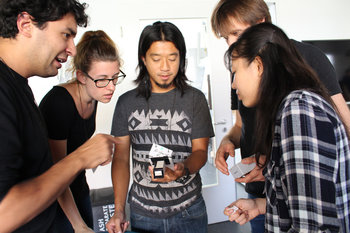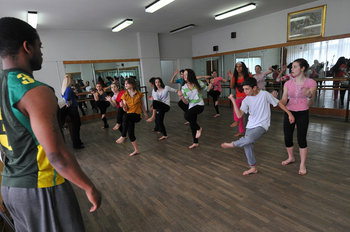
Freelancer
A professional such as a designer or writer who offers their services to an employer on a flexible basis. Freelancers may work with a single employer for years at a time or may work for many employers concurrently. In the case that a freelancer works for a single employer, the term suggests they have no job security and the employer can terminate their relationship without much notice.Performances
Paid performances such as musical performances by an independent artist.Two-sided Market
There are many two-sided markets that match employers with workers for short term assignments. For example, an app that matches people who need a drive with freelance taxi drivers.Consumer-to-Consumer
Consumer-to-consumer is a commercial relationship between people without the involvement of a business. For example, a semi-retired carpenter who does small jobs for friends, family and neighbors.Casual Employment
An employee who is paid an hourly wage that has no job security or guarantee of work. For example, a teacher at a language school who is only paid when students show up for classes.Seasonal Employment
An employee who is hired for a fixed term at an hourly wage. For example, a retailer or ecommerce firm may hire addition workers for a few months around Christmas.Permatemp
An employee who is hired on a temporary basis that is continually extended. Such an employee may not receive the benefits and job security offered to other employees at the same firm.Gig Economy vs Small Business
A small business offers a product or service that is defined by the business. The term gig economy implies that you are essentially a worker who provides labor to an employer.Gig Economy vs Contract Work
Contract work is employment that is structured by a contract. This is often viewed as a business-to-business arrangement whereby the employer can avoid certain taxes, employment regulations and benefits. In some cases, the employee is compensated for this arrangement with higher pay than regular employees. Contracts are commonly a year, six months or three months in duration. These are often extended such that contract work resembles regular employment. This is very different from the gig economy whereby employees may work many different jobs in a single month. Payments for work under the gig economy may not be based on an hourly wage but for completion of a task or deliverable. As such, the gig economy is less stable, more flexible and often more temporary in nature than contract employment.Gig Economy vs Sharing Economy
The sharing economy is another term for rentals or club goods whereby customers are provided access to an asset for a fee. For example, renting out a vacation property. The gig economy is the provision of labor for a fee, the sharing economy is the provision of an asset for a fee. In many cases, both of these apply. For example, a freelance taxi driver is offering both her labor and vehicle to the customer.Advantages
Some workers find that the gig economy has a number of benefits:ExperienceYoung workers or workers making a change may find that the gig economy allows them to gain valuable job experience that helps them to develop.FlexibilityThe flexibility to work odd, irregular and/or minimal hours. For example, a father or mother who are primarily devoted to raising a family who work when they can find time.Better Than NothingWorkers who have had difficulty finding stable employment may find that the gig economy is a viable option. Financial RewardsSome freelancers make far more money than they might be able to make in another form of employment. For example, some freelance photographers find that gigs such as weddings pay better than "regular" forms of employment such as a career in photographic journalism.Disadvantages
Disadvantages differ greatly by situation but can include instability, lack of benefits, lack of legal protections, low pay, an irregular work schedule and difficulty collecting fees.Notes
There are vastly different regulations governing the gig economy from one country to the next. Some of the illustrative examples above may not be legal practices in your jurisdiction.The gig economy may also have benefits for an economy as it allows diverse commercial interactions that might be impossible using a regular form of employment that requires significant commitment and costs of the employer.| Overview: Gig Economy | ||
Type | ||
Definition | Labor that is offered on a temporary and flexible basis. | |
Etymology | A gig is a musical performance. This term is thought to have originated amongst jazz musicians in the 1920s. Possibly related to the Italian gigue, a type of traditional dance. The term gig as a musical performance is referenced in the British magazine Melody Maker, in the September 1926 issue on page 7.Musicians commonly make money from a gig and it is a short term, somewhat flexible arrangement. Thus the term gig economy. | |
Related Concepts | ||

































